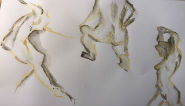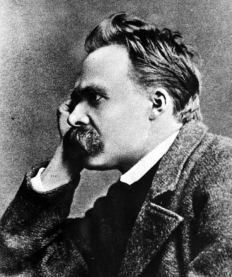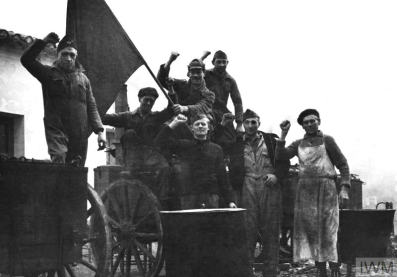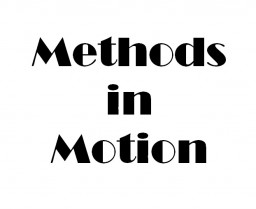The following blogs are by active researchers from across the OU, in which they take a moment to reflect upon their experiences.
You can discover more about Methods in Motion on the CCIG website.

-
Methods in Motion: Research Modes, Moves, Methods
Read now to access more details of Methods in Motion: Research Modes, Moves, MethodsElizabeth Silva rounds off the 'Methods in Motion' blog series reflecting on how her own life experience has informed her ways of knowing, and the contribution made by the MiM blogs to advancing 'how we know'.

Article
Level: 1 Introductory
-
Methods in Motion: Inside Outsiders and Outside Insiders
Read now to access more details of Methods in Motion: Inside Outsiders and Outside InsidersIn today’s 'Methods in Motion' blog, the ordeal of conducting research interviews in imperfect German is turned to advantage by Sara de Jong in trying to understand how participants identify as ‘insiders’ or ‘outsiders’.

Article
Level: 1 Introductory
-
Methods in Motion: Acknowledging the active participant
Read now to access more details of Methods in Motion: Acknowledging the active participantParticipants come to research interviews with their own expectations, and researchers have to take account of this, says Senior Lecturer in Social Psychology Dr Stephanie Taylor.

Article
Level: 1 Introductory
-
Methods in Motion: Introducing Methods in Motion
Read now to access more details of Methods in Motion: Introducing Methods in MotionThe world is always changing around us. If we want to understand how, we need to think about how we understand. Elizabeth Silva explains why methods do not only describe the world, they build it.

Article
Level: 1 Introductory
-
Methods in Motion: Becoming relativist
Read now to access more details of Methods in Motion: Becoming relativistDr Manuel Dries, Lecturer in Philosophy at the OU, explores how a quest for absolute knowledge has led us into relativism (which is an opportunity)

Article
Level: 1 Introductory
-
Methods in Motion: Finding a voice after Brexit
Read now to access more details of Methods in Motion: Finding a voice after BrexitIn a world that appears increasingly hostile to expertise, Janet Newman suggests ways forward – and some new alliances.

Article
Level: 1 Introductory
-
Methods in Motion: Clashing loyalties
Read now to access more details of Methods in Motion: Clashing loyaltiesGeoff Andrews argues that a multidisciplinary approach is key if we're to get to the heart of human vulnerabilities at moments of competing loyalties.

Article
Level: 1 Introductory
-
Methods in Motion: The magpie
Read now to access more details of Methods in Motion: The magpieEdward Wastnidge is trying to make sense of methods - and has a confession to make...

Article
Level: 1 Introductory
-
Methods in Motion: A view from a train
Read now to access more details of Methods in Motion: A view from a trainWhat has physics ever done for psychology? Paul Stenner, Professor of Social Psychology, investigates the history of movement in Physics, and considers what it means for Social Science.

Article
-
Methods in Motion: With the mothers of Munich & Birmingham
Read now to access more details of Methods in Motion: With the mothers of Munich & BirminghamDr Agata Lisiak, Visiting Fellow at The Open University, explores the fast-changing world of research into migration and belonging.

Article
Level: 1 Introductory
-
Methods in Motion: Remaking self-help
Read now to access more details of Methods in Motion: Remaking self-helpDr Meg-John Barker discusses how new ways of thinking can be linked to new forms of investigation

Article
Level: 1 Introductory
-
Methods in Motion: Occupying spaces in Hong Kong and London
Read now to access more details of Methods in Motion: Occupying spaces in Hong Kong and LondonPaul-Francois Tremlett explored the spaces the Occupy movement created - physical spaces, but also political spaces.

Article
Level: 1 Introductory
-
Methods in Motion: Communicating a challenge to liberal democracy
Read now to access more details of Methods in Motion: Communicating a challenge to liberal democracyDr Georgina Blakeley, Senior Lecturer in Politics, offers one way of approaching the study of the Spanish anti-austerity 15M movement.

Article
Level: 1 Introductory
-
Methods in Motion: Politics is awash with large emotions... isn't it?
Read now to access more details of Methods in Motion: Politics is awash with large emotions... isn't it?In a political climate seemingly awash with powerful emotions, Emeritus Professor John Clarke suggests we should take stock of what people do as well as feel.

Article
Level: 1 Introductory
-
Methods in Motion: What does Open Methodologies mean?
Read now to access more details of Methods in Motion: What does Open Methodologies mean?A changing society needs changing methods to make sense of itself. Open Methodologies offers a new way of research. Elizabeth Silva explains more.

Article
Level: 1 Introductory
-
Methods in Motion: Remaking experimental philosophy
Read now to access more details of Methods in Motion: Remaking experimental philosophyThe emerging experimental philosophy movement, borrowing approaches from psychology, is interesting - but it can and should go further, believes Claire Hewson

Article
Level: 1 Introductory
-
Methods in Motion: The social psychology of citizenship
Read now to access more details of Methods in Motion: The social psychology of citizenshipTaking the tools of psychology and using them to explore citizenship can be revealing - so why doesn't it happen more often, asks Eleni Andreouli.

Article
Level: 1 Introductory
-
Methods in Motion: As borders flex, how does citizenship change?
Read now to access more details of Methods in Motion: As borders flex, how does citizenship change?People came together to consider how we make sense of questions of citizenship at a time when those questions are so contentious.

Article
-
Methods in Motion: Getting on your bike, and looking for answers
Read now to access more details of Methods in Motion: Getting on your bike, and looking for answersDr Peter Wood, a Visiting Fellow with the Geography Discipline, argues that although methodological choices are often seen as technical decisions, they can actually be key to intellectual creativity.

Article
Level: 1 Introductory
-
Methods in Motion: The things we don't know
Read now to access more details of Methods in Motion: The things we don't knowAs debates about 'truth' continue to hit the headlines, sociologist and Visiting Fellow Dr Jane McCarthy explores what we 'don’t know' in cross-cultural research.

Article
Level: 1 Introductory
-
Methods in Motion: Emotionally sensing knowledge
Read now to access more details of Methods in Motion: Emotionally sensing knowledgeDr Ruth Evans shows how an approach of ‘uncomfortable reflexivity’ in cross-cultural research can help to reveal the work of emotions.

Article
Level: 1 Introductory
-
Methods in Motion: The middle children
Read now to access more details of Methods in Motion: The middle childrenDr Sarah Crafter explores how child language brokers act as cultural mediators of identity and belonging.

Article
Level: 2 Intermediate
-
Methods in Motion: How do researchers know?
Read now to access more details of Methods in Motion: How do researchers know?Emeritus Professor Wendy Hollway looks at the motion of emotion in research, asking 'How do we know?'

Article
Level: 2 Intermediate
-
Methods in Motion: Is Q still the answer?
Read now to access more details of Methods in Motion: Is Q still the answer?Paul Stenner considers social constructionism - and wonders if it ever-changing times means research methods also need to change.

Article
Level: 2 Intermediate
-
Methods In Motion
Learn more to access more details of Methods In MotionVisit the Methods In Motion site for more on the project

External link
-
Methods in Motion: An emerging politics of Brexit
Read now to access more details of Methods in Motion: An emerging politics of BrexitAre we seeing the start of a new political, ideological and cultural order? Dr Eleni Andreouli weighs the evidence.

Article
Level: 1 Introductory
-
Methods in Motion: Challenging the Narrative
Read now to access more details of Methods in Motion: Challenging the NarrativeEddie Wastnidge sets out why he believes academics like himself have a duty to challenge the biased narratives driving Western policy in the Middle East, and what this could achieve.

Article
Level: 1 Introductory
-
Methods in Motion: Developing psychosocially informed self-help on gender
Read now to access more details of Methods in Motion: Developing psychosocially informed self-help on genderSenior Lecturer in Psychology Dr Meg-John Barker challenges the 'gender is binary and fixed at birth' narrative.

Article
Level: 1 Introductory
Rate and Review
Rate this article
Review this article
Log into OpenLearn to leave reviews and join in the conversation.
Article reviews